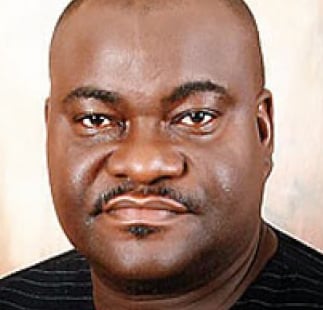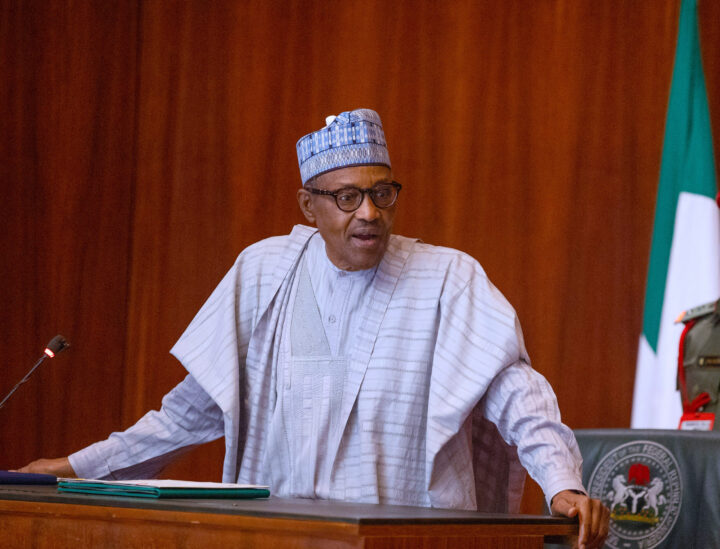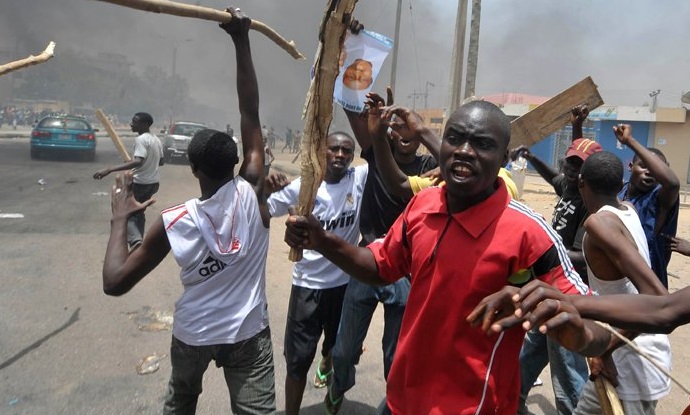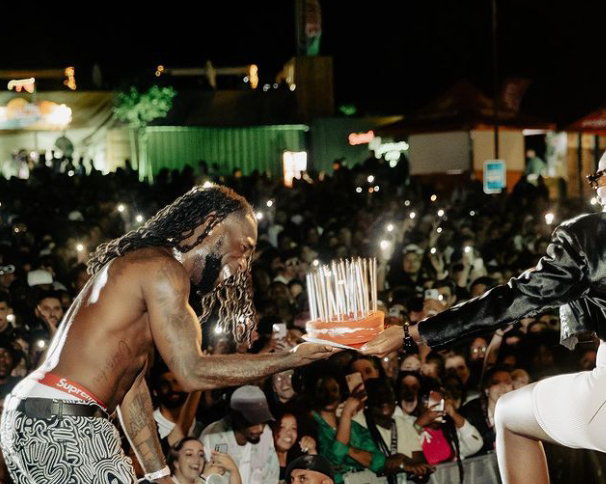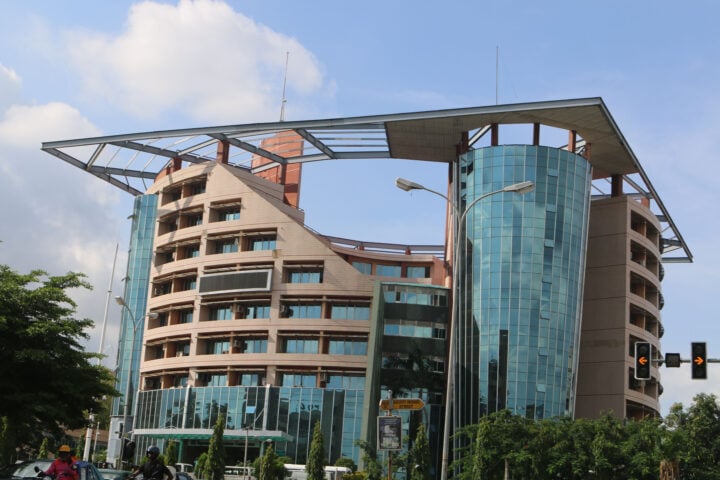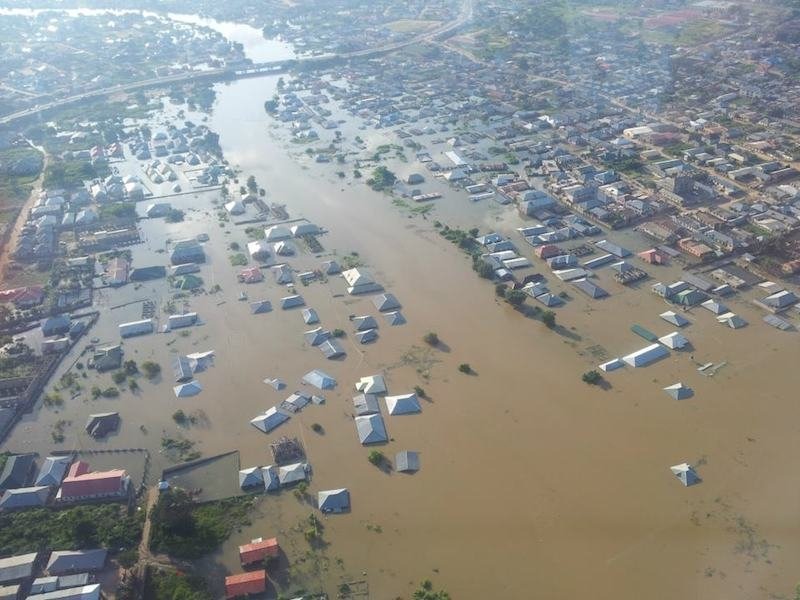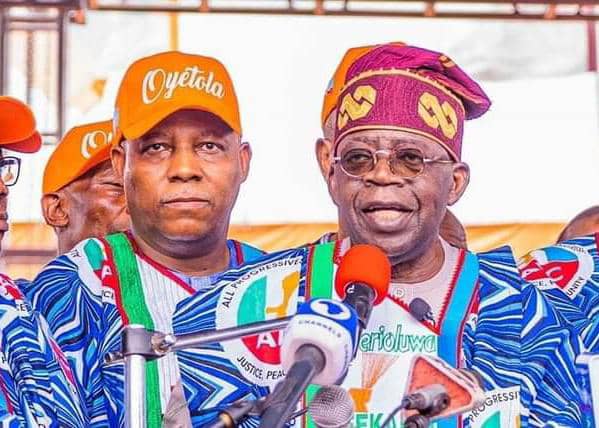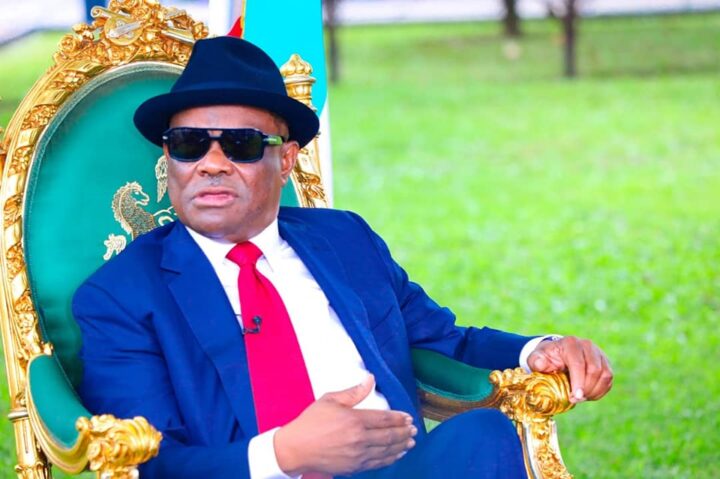PRESIDENT BUHARI RECEIVES SOME SENATORS 0A&B President Muhammadu BUHARI during an audience at the State House. PHOTO; SUNDAY AGHAEZE. JUNE 28TH 2022
Emotions were mixed as we hurled our bags and boxes on our shoulders, shook hands, hugged one another, and headed for the various motor parks, en route to our various destinations. We had gotten so close-knit with new friends we made within the preceding, mandatory one-year National Youth Service Corps (NYSC). In some instances, some of these relationships had made virtual siblings of friendships. Our set produced notable personalities like Oby Ezekwesili (former education minister); Sunny Togo Echono (executive secretary of the Education Trust Fund, ETF), and Armstrong Idachaba, (former director-general of the National Broadcasting Commission, NBC).
We also had Amaechi Elumelu, assistant inspector general of police; Tony Olofu, (police commissioner in-charge of Eastern Ports, Port Harcourt) and Dede Mabiaku (protege of Fela Anikulapo-Kuti and established afrobeat artist himself). Dennis Eboreime, (who rose to the topmost rungs of leadership in the United Bank for Africa, UBA); Kingsley Jatto, a US-based realtor; Ibrahim Dikko (a top shot in telecommunications) and Mathew Aligbe, (former registrar of the Federal Polytechnic, Owerri) were also in that NYSC batch. Dateline was July 1986, one month short of the first anniversary of the military regime of Ibrahim Babangida, which advent we heard on the airwaves of the Imo State Broadcasting Corporation (IBC) on August 27, 1985. We were on the playground of Alvan Ikoku College of Education (AICE), Owerri which had been adapted into a “parade ground” for the purposes of paramilitary drills, a key component of the orientation regimen. Babangida and company had just kicked out the 20-month-old regime of Muhammadu Buhari, yes, this democratically-reincarnated Buhari, which was rapidly sliding into fascism.
Our minds were respectively burdened by the grim and gloomy realities waiting out there for us as young graduates. Prospects of white-collar jobs were already thinning before we graduated. My mind indeed went straight back to Bode Sowande’s 1979 play, ‘The Night Before’, in which I previously acted, which highlighted the apprehensions and concerns of young university graduates on the eve of their convocation. We had schoolmates and friends who graduated before us whose blistered feet were still pounding the inflamed tar and humid earth of un-smiling streets, in vain quest of engagement in whatever form. Here we were poised to confront the same grim reality, the same wrenching gloom, like our earlier compatriots.
Some of us were going to get lucky as we returned to our home state, the erstwhile Kwara state. An unusually proactive bureaucracy at the time had advised the military leadership in the state to mitigate a palpable unemployment crisis by thinking outside the box. In a rare demonstration of pragmatism and political will, the government of the day terminated the contract appointments of all non-Nigerian instructors in its employ. Indians and Pakistanis variously taught mathematics and science subjects; Ghanaians, English, while Togolese and Beninoise taught French languages. This opened a window for me to get a job as an education officer. I was spontaneously deployed to Ponyan, a community in the modern-day Yagba east local government area, in contemporary Kogi state, to teach English language and literature in English.
Advertisement
It turned out that Ponyan was the very first place I would sight a document which is abbreviated as and famously called the APER form, very popular in the lexicon of the civil service. The full meaning of the acronym is: “Annual Performance Evaluation Report”. The private sector indeed has a similar appraisal template used for the assessment of its employees. The APER form has all manner of columns and boxes on a broad spectrum of indices, relating to personnel performance. These include key performance areas, self-appraisal, performance analysis, performance ratings, and counselling.
There are also provisions for comments and endorsements by the head of department (HOD) of the officer being assessed, the central supervising authority, and the overall head of that institution or organisation, among others. Confirmation of appointments, salary adjustments, promotions, deployments to higher responsibilities, and recommendations for training are all influenced by how glossy or grimy your APER form is. I’m told it has worn a new name, the personnel management system (PMS, sounds like premium motor spirit) since November 2020. All extant parameters of assessment remain valid in the new form, notwithstanding. I should also note that even in the milieu under discussion, Nigerians from other parts of the country were on the staff of other states. The principal of Oke-Oyi Secondary School to which I was posted, Basil Ikenazor, was from Anambra state!
At a retreat for members of the federal executive council (FEC) about a week ago, Buhari, Nigeria’s president, awarded his seven-and-half-year-old administration a multisectoral pass mark! I wish he had been more restrained in this vain-glorious acclamation for a man whose more perceptive wife, Aisha, has repeatedly pleaded with Nigerians to excuse his failings and foibles. She was so very frank on one occasion that she admitted to the affliction of her husband with “post-traumatic stress disorder (PTSD)” when she got wedded to him. The condition, she volunteered, has been her lifetime cross, ever since. Let’s hope Buhari was not a victim of an overzealous speechwriter.
Advertisement
Buhari applauded the endeavours of his dispensation in the areas of infrastructure, agriculture, economy, security, education, healthcare, and anti-corruption, among others. He gleefully surmised that with the nationwide spread of infrastructural projects by his government, he had met the yearnings of Nigerians. His self-adulation was powered by perceived successes in the completion of some projects initiated by previous governments, and the initiation of new ones. The Second Niger Bridge, Port Harcourt-Bonny Road, Abuja-Kaduna-Zaria-Kano Road, and Lagos-Ibadan Expressway, collectively dubbed “legacy projects,” principally inform the chest-thumping by the president.
Immediate past Kenyan president, Uhuru Kenyatta, was the guest of honour at the retreat. Buhari didn’t speak about some patently relegated, albeit all-important road projects, deserving of the same attention, as the “legacy” souvenirs. The very critical 338-kilometre East-West road traversing five oil-buoyant states in the Niger Delta region, flagged off by the administration of Olusegun Obasanjo in 2006 remains uncompleted. The same is the story of the crucial North-South artery, the 270-kilometre Okene-Lokoja-Abuja road, also begun in 2006, amongst many others. Buhari’s administration also rejuvenated the moribund rail sector, availing Nigerians another travel option different from the more popular road travel. The March 2022 terrorist attack on an Abuja-Kaduna shuttle train which culminated in the killing and abduction of travellers, however, has since dampened national enthusiasm for rail travel ever since.
Without any equivocation whatsoever, it is very obvious that infrastructural development is the sole strong point of the Buhari government. However, it is not the sole index for the holistic appraisal of his period in office. The fact is that his governorship has failed in grand style, in other sectors of our national life and aggregate well-being. And this is the gospel truth. Where do we begin? Against the backdrop of his antecedents as an uncompromising battle-tested general, expectations were high about the decisive resolution of festering security challenges on his assumption of office. The most disturbing scourge inherited from his predecessor was the Boko Haram insurgency in the north-east of the country. Under the Buhari milieu, however, virtually every geopolitical zone is contending with one security hydra or the other.
Indeed, never in the history of Nigeria has the country’s vulnerability been as exposed and rubbished, as it has under Buhari. At a time in our political history when the world criticised the USA for posturing as the “policeman of the world,” Nigeria was effectively the ultimate enforcer in West Africa. From Liberia to Sierra Leone and to Guinea, Nigerian troops were out there hoisting the national flag with merited aplomb. They commanded the recognition of the United Nations (UN) and the world at large for novel initiatives in sub-regional peacekeeping. Since the advent of the Buhari years, however, the story has changed for the worse. From the abduction of officers within their comfort zones in military installations to watching terrorists violating the serenity of an airport and halting the takeoff of a flight, Nigeria’s security architecture has been serially bludgeoned.
Advertisement
A moving train has been attacked, travellers killed and abducted while the government has had to procure the services of civilian consultants to monitor and unravel leakages in its oil pipeline network! True, the Nigerian Navy is primarily charged with the responsibility for the protection of our maritime security and natural resources. It needed third-party intelligence, however, to come to terms with the reality of the devious decade-long pilferage of crude oil within its area of responsibility. This has long impacted Nigeria’s attainment of its daily quota of crude oil export, and by extension drastically affected the nation’s earnings from sales of the product.
Grabby Fulani herdsmen have largely unsettled parts of the north-central, engendering recurring skirmishes between indigenous landowners and the Sahelian adventurers. The worst hit are Benue, Nasarawa, and Taraba states. One-time chief of army staff, (COAS) and defense minister respectively, Theophilus Danjuma, on Saturday re-echoed his former concerns about the complicity of the establishment in the worrisome security situation in the state and the country at large. He spoke at the installation of the new Aku Uka of Wukari, Taraba State, Manu Ishaku Ada Ali.
Danjuma, a war-tested general not given to flippancy or frivolities, expressed genuine fears about the sustained prosecution of a neo-colonial agenda by unrestrained foreign invaders. He advised Nigerians to brace up in self-defense given the inexplicable failure, maybe complicity of the government in this regard. Lives have been lost in hundreds, nay thousands, aborigines forcefully displaced from their homesteads and herded into camps for internally displaced persons (IDPs) in their own home country! Subsistence and commercial farming have been savagely impaired and the earth-sustained local economy of the people, discombobulated. The tepid disposition of the federal government to the routing of the menace has fuelled suspicions of acquiescence on the part of the state.
Swathes of Niger state, also in the north-central, and the luminous north-west of the country are contemporary nests of kidnapping and banditry. Zamfara, Katsina, and Kaduna states are the epicentres of this mortally dangerous specie of criminality. Seizures of highways even in broad daylight by gun-toting upstarts, abductions-for-ransom, and the killings of the innocent have become customary and emblematic of these areas. A flustered Aminu Masari, the helmsman of Katsina, echoed Danjuma urging his constituents to defend themselves. Remember the emboldened audacity of these ragtag criminals in engaging in a firefight with personnel on the advance party to Buhari’s hometown, Daura, a few weeks back. That is how daring and fearless these brigands have blossomed.
Advertisement
The news from the south-east is not inspiring. From Anambra, through Enugu and Imo states, the east has effectively metamorphosed into a functional abattoir. Here, unknown gunmen, who have won for themselves the acronym “UGM” and similar blood-spilling ogres, reign supreme. Political adviser to former President Goodluck Jonathan, Ahmed Gulak; a former high court judge, Stanley Nnaji; and Sam Ndubuisi, professor and chief executive of Scientific Equipment Development Institute (SEDI) were murdered on the streets of cities in the south-east. Phillip Udala, a billionaire businessman, and Chike Akunyili, a medical doctor and spouse of the late amazon, Dora Akunyili, were similarly extinguished in vivid daylight in the east. Ifeanyi Ubah, a serving senator, only a few weeks ago, survived assassination by the skin of the teeth. His convoy of vehicles was brutally attacked by gunmen, culminating in at least half a dozen deaths.
South easterners, in a manner of speaking, are in the eternal dilemma of adherence to pronouncements by state governments on one hand as against directives from the “alternate government” of the Indigenous Peoples of Biafra (IPOB), and its equally lawless ally, the Eastern Security Network (ESN). IPOB and ESN decide, decree, and enforce days, dates, and times people should be on the streets. They also determine when they must remain in their homes. On his recent visit to Imo state, Buhari was welcomed by vacant, echoing streets. The people complied with the pronouncement of IPOB not to venture out of their homes to receive a president who they believe loathes them with a passion. Violation of this faceless directive could result in bloodshed. Such is the biting siege imposed on the region which, expectedly, has impacted the socioeconomic regimen of the people famous for business, innovation, and industry.
Advertisement
Reports from the Nigerian Security Tracker, a project of the Council on Foreign Relations of the USA, suggest that about 55,000 Nigerians have been killed since the inception of the Buhari regime. According to the report, non-state actors were responsible for these casualties between May 29, 2015, and October 15, 2022. Herders-farmers’ conflicts, altercations by religious groups, as well as attacks by insurgents and bandits, accounted for this wanton waste of invaluable resources. On the aggregate, about 20 Nigerian lives have been lost every single day since the coming of the outgoing government.
Olusunle, PhD, poet, journalist, scholar and author is a Member of the Nigerian Guild of Editors (NGE)
Advertisement
Views expressed by contributors are strictly personal and not of TheCable.
Add a comment
